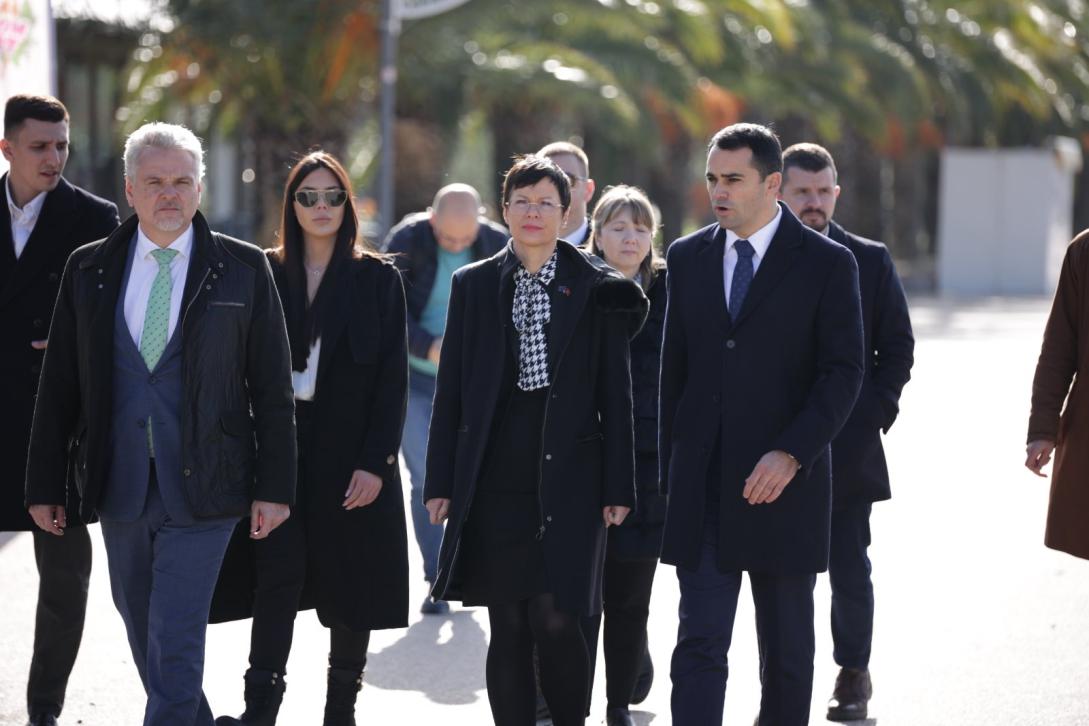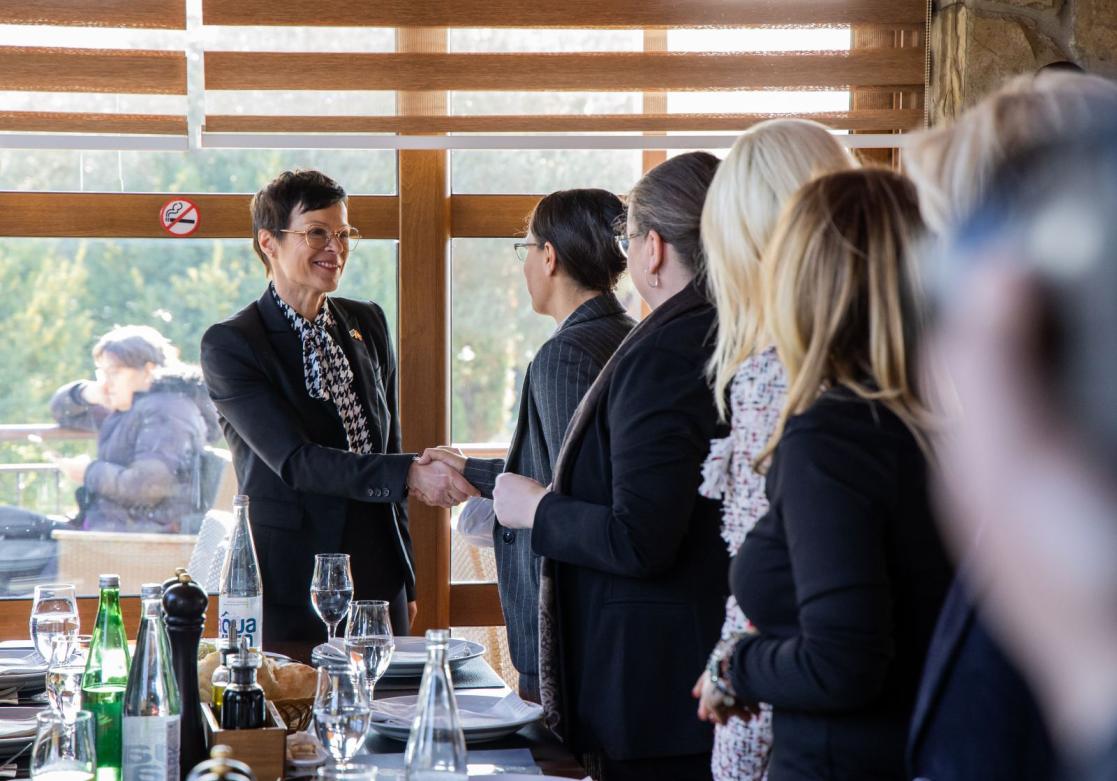EU Commissioner for Enlargement Marta Kos visited the Maritime Safety Centre, Municipality of Bar, and held discussions with influential women of Montenegro

EU Commissioner for Enlargement Marta Kos visited the main control centre of the Vessel Traffic Monitoring and Information System (VTMIS) in Dobra Voda, highlighting the importance of EU support in improving maritime safety standards and aligning Montenegro with EU legislation under Chapter 14 (Transport Policy) and Chapter 21 (Trans-European Networks).
As part of two EU-funded projects amounting to €3.7 million, VTMIS is crucial at ensuring maritime safety along Montenegro’s Adriatic coastline. Following a project presentation attended by the Minister of Maritime Affairs, Filip Radulović, Commissioner Kos praised the achievements and emphasised the need for adopting stringent maritime safety rules to minimise environmental risks and prevent substandard shipping practices.
“Maritime safety is an important part of Europe’s protection, and it is of utmost importance for the EU and its Member States. The modernised system not only safeguards Montenegro’s coastal areas but also aligns the country with European standards, preparing it for future Union membership,” stated Commissioner Kos.
She also highlighted the successful implementation of the “National Maritime Single Window,” an EU-funded programme aimed at modernising maritime transport by reducing administrative burdens for shipping companies entering and leaving ports, harmonising reporting requirements, and digitising the transfer of information.
After the visit to the control centre, Commissioner Kos in the company of the Mayor of Bar, Dušan Raičević, visited a humanitarian organisation and the meal centre which is operated by the NGO Women of Bar. Commissioner Kos spoke with the women who prepare 250 meals daily for vulnerable individuals and praised their humanitarian efforts. She introduced several anticipated EU projects focused on supporting local civil society organisations, which could further bolster the noble efforts of Women of Bar.
Commissioner Kos took the opportunity to walk along Bar’s promenade, discussing the opportunities arising from EU accession negotiations with Mayor Raičević. These opportunities could help Bar fully realise its potential and benefit local communities. “As Montenegro’s EU accession process gains momentum, municipalities like Bar will play a key role. Over 70% of the EU’s acquis is implemented at the local level,” stated Commissioner Kos. She added that projects such as those in Old Bar demonstrate how EU support improves lives and creates new opportunities.

Copyright: Evropska kuća
Commissioner’s first visit to Montenegro concluded with a meeting with women leaders from various sectors of society, ranging from politics to civil society. During the meeting, she emphasised that gender equality is a fundamental EU value and a key component of Montenegro’s EU accession process. She stressed the need for Montenegrin authorities to prioritise reforms concerning human rights, gender equality, women’s empowerment, and social inclusion.
“Montenegro must address the gender pay gap, improve women’s participation in decision-making processes, and combat gender stereotypes. These are essential steps not only for alignment with the EU standards but also for building a more democratic and prosperous society,” she declared.
The Commissioner praised the inclusion of prevention of gender-based violence in Montenegro’s Reform Agenda and underlined the importance of monitoring the implementation of binding guidelines issued by the Supreme State Prosecutor for handling such cases. She also welcomed plans to enhance the database on domestic violence and establish crisis centres for victims of sexual violence.
Commissioner Kos further highlighted the significant role of civil society in addressing societal challenges by participating in policy debates, proposing innovative, sustainable, and inclusive solutions, monitoring the outcomes of reform processes, and connecting the state with local communities, which is particularly vital at the local level.





